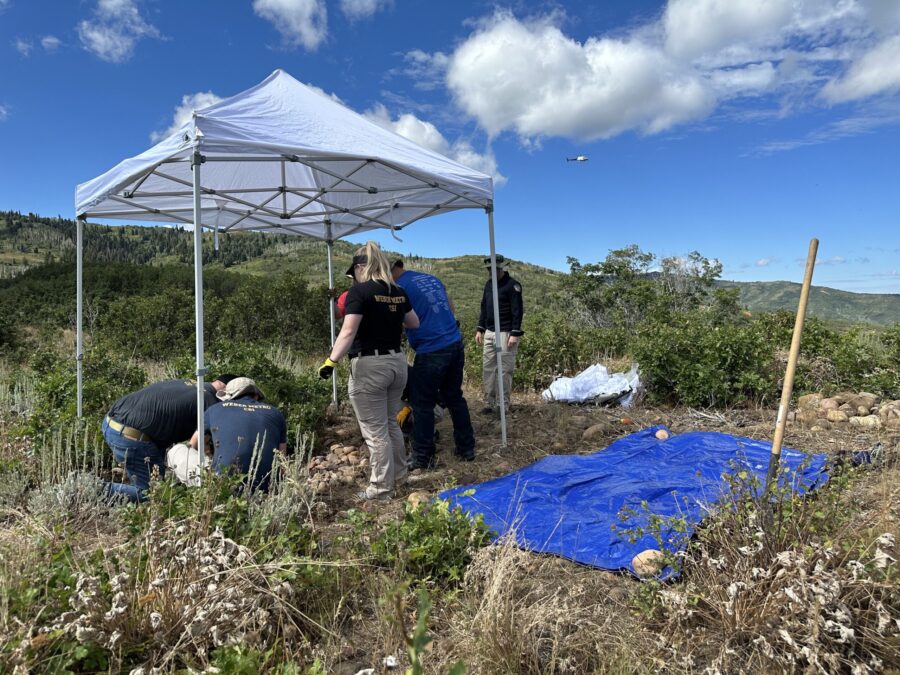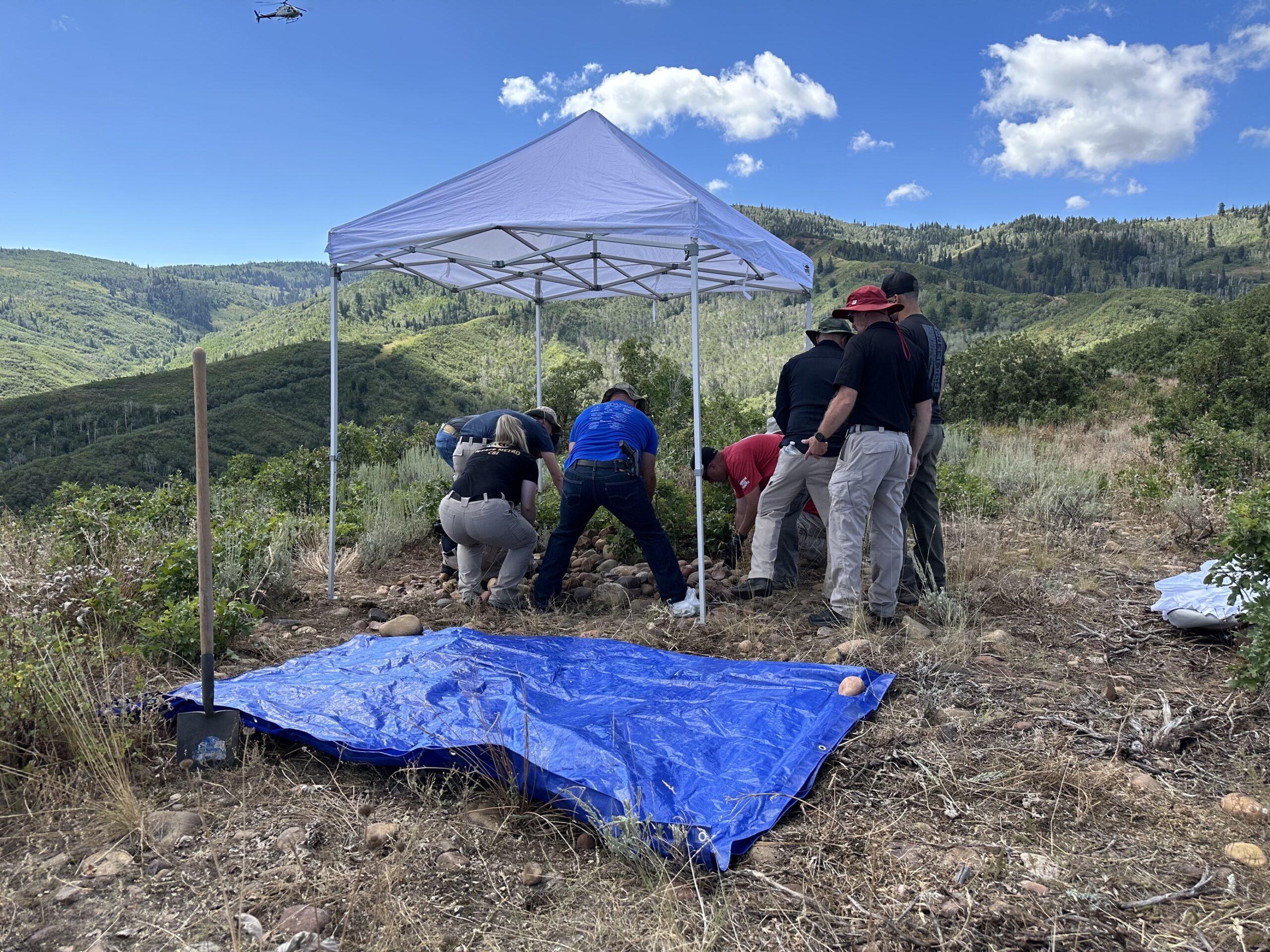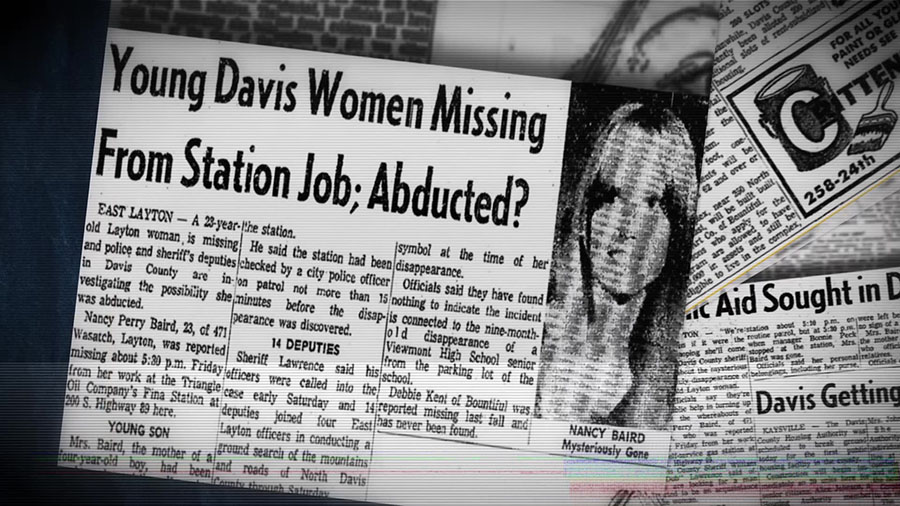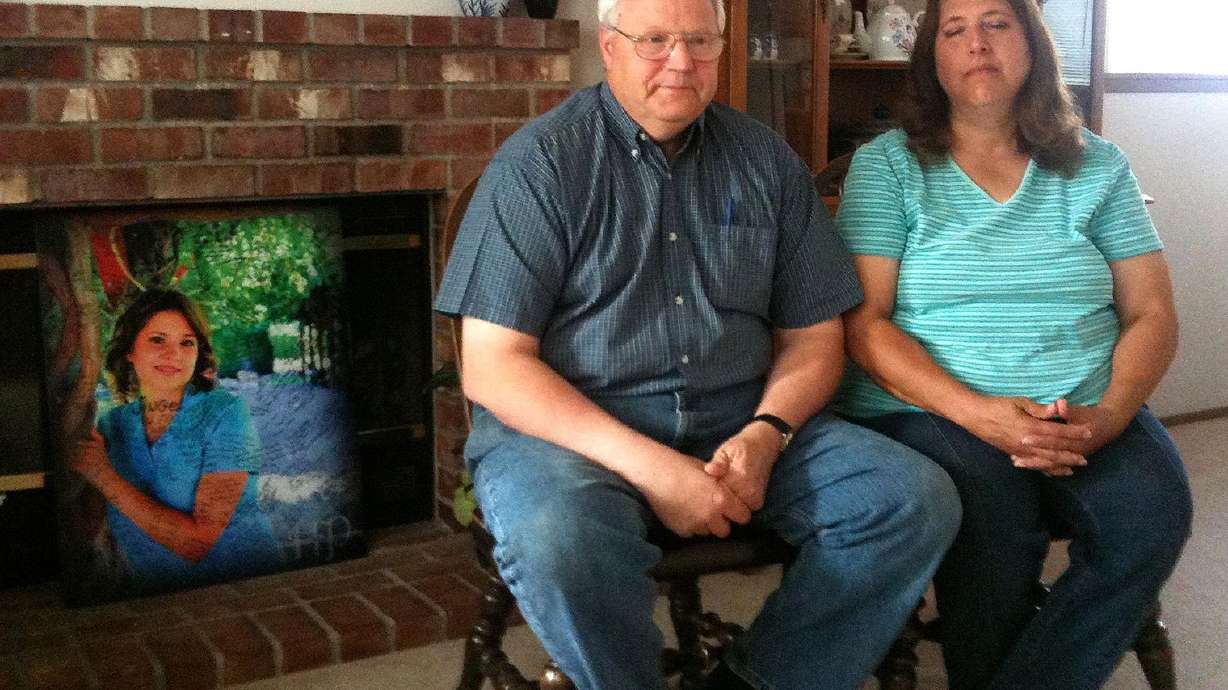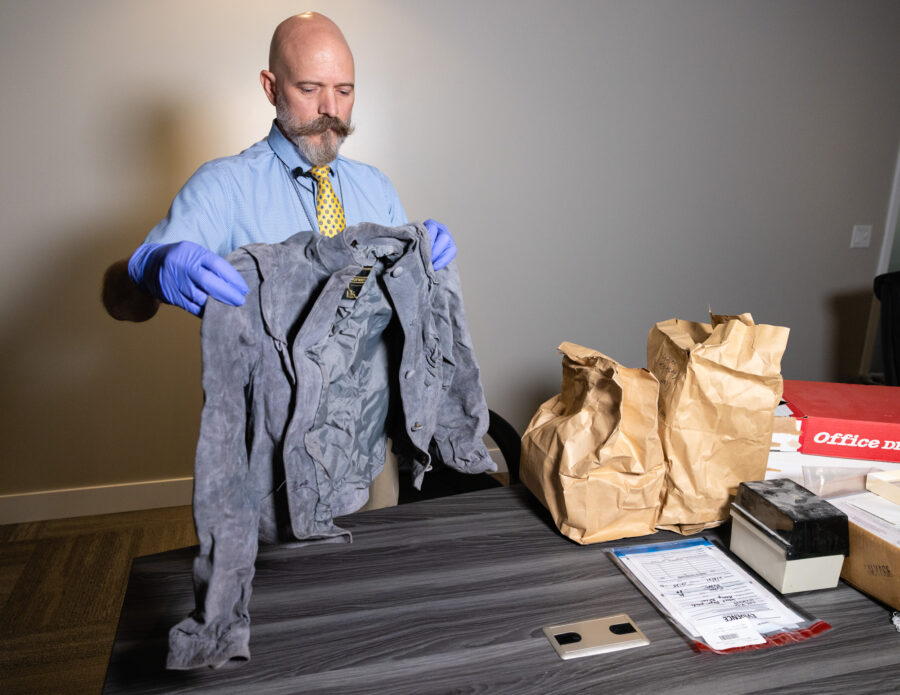COLD: The Cost of Domestic Abuse
Nov 28, 2018, 10:20 PM | Updated: Nov 29, 2018, 7:23 am
SALT LAKE CITY, Utah – “He said, ‘We can’t use lawyers. I would be ruined, too, but I would ruin you. The kids would be raised without a mother and a father.'”
Pacing back and forth inside her West Valley City home, Susan Powell dictated a recap of the latest fight she’d had with her husband while her friend, Kiirsi Hellewell, took notes in short-hand.
“I had to keep my eyes on the paper because she was talking so fast,” Hellewell told us. “Sometimes I would have to say, ‘OK, can you say that again?’ and just tried to do my best. I just felt really sorry for her, like I always did as things were getting worse with Josh, and wishing that I could somehow snap my fingers and give her a wonderful life that she deserved.”
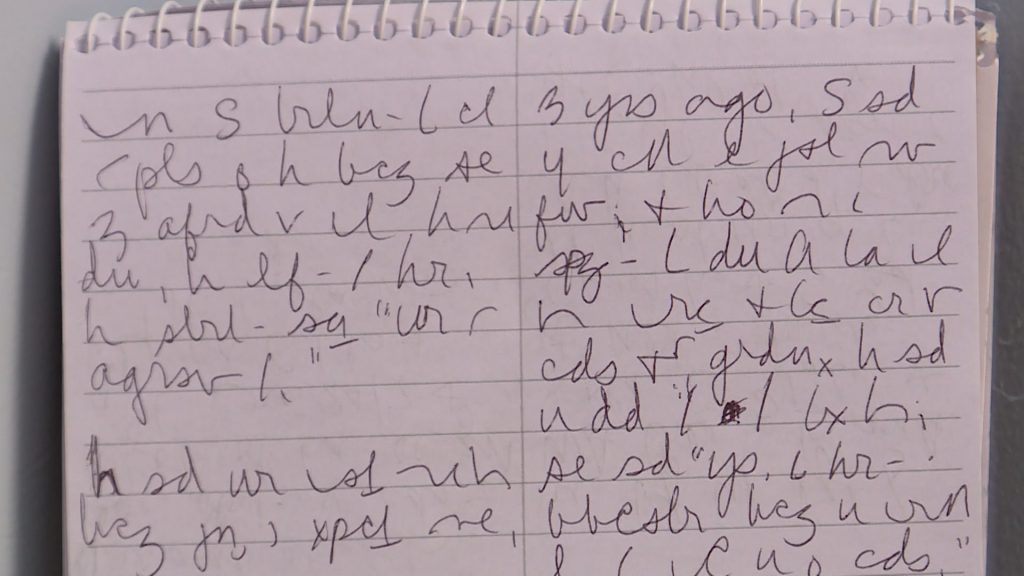
Short-hand notes Kiirsi Hellewell took as Susan recounted a fight with her husband Josh in 2008.
It was June 27, 2008. A Friday. Hellewell remembers Susan called her and asked her to stop whatever she was doing and come over to write everything down.
“She was angry,” she said, “so angry that she couldn’t hold still.”
Susan detailed the argument, telling Hellewell how Josh had called her irrational, a liar, a religious fanatic and in need of therapy. She recounted Josh’s claims that their marriage was broken because of the Republicans and the economy and the environment.
“It was the first time I’d heard those bizarre claims that Josh made, and I just kind of was raising my eyebrows and going, ‘He said what?'” Hellewell interjected as she reread the transcript of her notes. “I didn’t want to interrupt her flow but I was just thinking, ‘What? Is he crazy?'”
Josh’s bizarre claims didn’t stop at politics. Susan told Hellewell that he’d started to speak about preparations for the end of the world.
“Josh said at one point, ‘We need to move to a state that has lots of water because we are going to run out of water on the earth,'” Hellewell wrote.
The couple’s faith and finances were prominent themes in the fight.
“Josh said if Susan wants to pay tithing, she can be given $50 a month allowance and out of that she can pay $5 tithing. He said if you pay tithing when you’re not supposed to you are going to hell. If you pay tithing and don’t believe in it bad things will happen to you and you will go to hell,” Hellewell’s transcription says.
Susan told Hellewell that Josh wants her to buy food for the family at prices that don’t exist anymore.
“He used to be so crazy that he would force her to go through all those little grocery ads that would arrive in the mail and he would go, ‘Alright, Macey’s has this item so go to Macey’s and get this, and Smith’s has this so you have to go and get this, and you can only spend this much and this is how much it’s going to cost and I want you to bring back the receipts and show me,'” Hellewell said.
Susan considered divorce for a time, but she decided to give her marriage every last opportunity to work. As things got worse, however, she was growing increasingly frustrated and fearful. She told Hellewell Josh had told her if she called the police or filed for divorce he would “ruin” her, and their kids “would be raised without a mother and a father.”
When Susan finished dictating to Hellewell, she asked her friend to transcribe the short-hand and give her a typed copy that she could take to work for safe keeping, away from Josh. Hellewell did and then tucked her original notes away, eventually forgetting about the incident until months after Susan disappeared.
It was then that she found the typed version and turned it over to police. She had no idea police already had the copy that they’d found in Susan’s desk drawer at work.
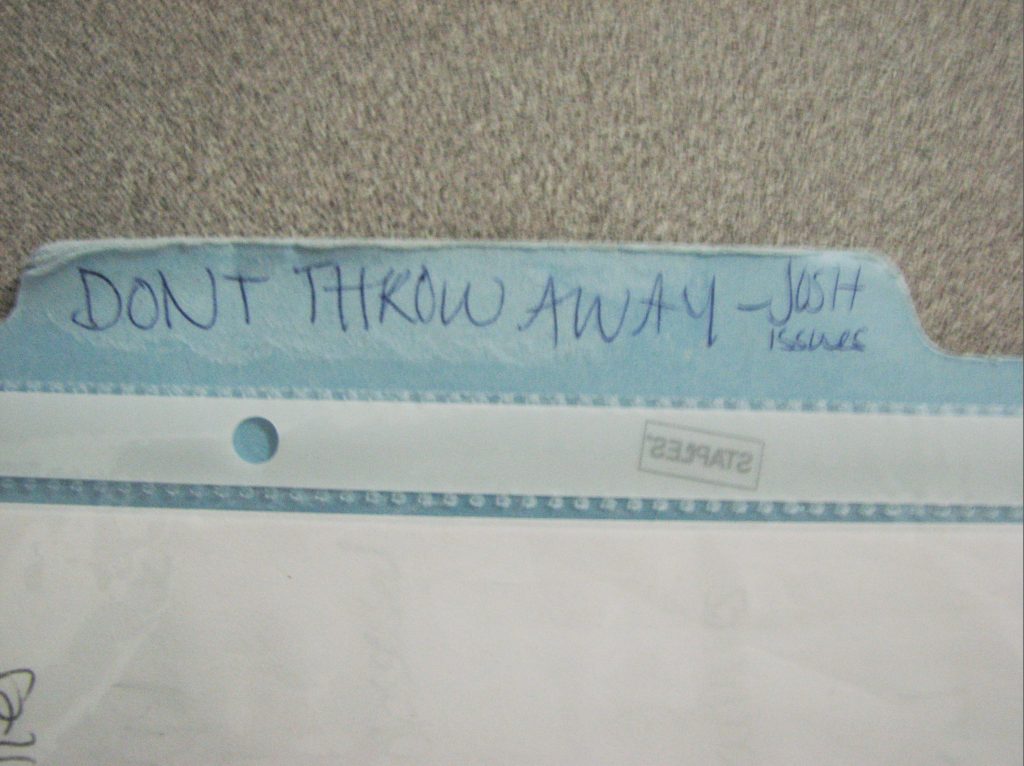
West Valley Police evidence photo: File detectives found inside Susan’s desk drawer at work in the days following her disappearance.
Along with the deposition, Susan had also stashed away a hand-written “last will and testament” in a safe-deposit box. In that document, she reiterated some of the issues they’d fought over and adding some startling new details. She addressed the will to “Family, friends of Susan, all except for Josh Powell, husband, I don’t trust him!” and inside the stapled paper envelope, at the end of her make-shift will she’d written “If I die, it may not be an accident. Even if it looks like one.”
Over the nine years since Susan disappeared, as police released pieces of evidence to the public, Hellewell had seen parts of Susan’s will, but never the entire thing. She had no idea until we sat down with her that Susan had written it the very next day after she’d transcribed their fight.
“If she had told me any of this,” Hellewell said, as she emotionally read the will, “and that she was this serious about it, I would not have left the house without making her come with me, with suitcases and the boys and not go back.”
Hellewell says she felt helpless as she watched Susan and Josh’s relationship deteriorate. She’d pressured Susan to meet with an attorney and offered support whenever she could.
“But there was nothing I could do to force her to get divorced and to get a restraining order against Josh,” she said.
Her helplessness is a common feeling among people whose friends or family are experiencing domestic abuse, according to Jenn Oxborrow, Executive Director of the Utah Domestic Violence Coalition.
She told us there are three things you can do to help.
“Listen and believe,” she said. “Know where to turn for help and know how to say to someone, ‘I’m really worried about what you just told me and when you’re ready, I want to help you connect with somebody who can help you plan for your safety — someone who does this every day and understands.’ And if you see an immediate safety risk call 911.”
Experts have ways to screen whether or not a person is at risk for intimate partner homicide.
“There are 10 factors that are evidenced, researched and proven to indicate high-risk for intimate partner homicide,” she said. “Susan’s case met a number of those.”
For years she was being abused, even though she wasn’t bruised, and Oxborrow says it’s important to remember domestic violence isn’t just physical.
“We can terrorize people without laying a hand on them,” she said. “We can do that by threatening to hurt children or animals. By threatening to ruin someone’s career or leave them in a poor situation financially or with their credit. So we can really terrorize people and be very violent and abusive without actually being physically in contact with them. Domestic violence isn’t as simple as being slugged or hit or kicked or slapped. It can include that, but it can also include these many, many, many other layers that we never really get a chance to see that are often deeply private.”
In hindsight, Hellewell wishes she had known how seriously afraid Susan was for her safety, as she wrote in her will.
“If I had known she had done this I would have said: ‘You’re afraid for your life. Something is telling you that you need to be afraid for your life, and if you’re scared that something’s going to happen to you and writing down that Josh did it, whatever it was, then you need to get out.”
Hellewell hopes now, that by keeping Susan’s story alive, others will be saved from further abuse, or worse.
“We’ve had a few people over the years write to us and say: ‘Because of Susan’s story, I got out. I recognized the red-flags and I got out before I ended up just like her, and I’m sure I would have,'” Oxborrow told us. “If there’s anybody else that we can help before it gets to that point, I don’t want to break up families, but there’s many Joshes in the world and there’s many Susans. And so if we can help more people recognize the signs and get out before they end up disappeared, then that would be great.”
You can hear more about Susan’s fears in the final months before she disappeared in Episode 3 of the COLD podcast, available now on all major podcast platforms and at TheColdPodcast.com
There are many resources available for anyone experiencing domestic violence. Help is available 24/7 at:
Utah Domestic Violence Hotline
1-800-897-LINK(5465)
National Domestic Violence Hotline
1-800-799-SAFE(7233)



